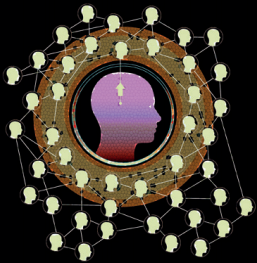A posthuman afterlife?

In the last decade, Nature has published weekly sci-fi short stories concerning the futures of technological discovery, human understanding, and issues concerning the ethical and philosophical consequences of rapid human evolution. In the latest issue, Spanish short fiction author Alvaro Zinos-Amaro presents a simultaneously humorous and dystopic vision of what potentially awaits the cryogenically preserved in the future: "Dumpster Diving - The silent treatment". Illusions of a pain free biotech-paradise in absolute balance catastrophically collapse when the protagonist awakes in 2189, only to discover that his mind has been irrevocably consigned as a waste bin for the “collected anguish of two billion people – a full tenth of the planet’s population”. Humanity has seemingly constructed an exclusively mental sphere of reality, whose balance and calm – unfortunately – requires dumping aggregated pain and suffering on whatever remains of the “biological scraps” of “the old ways”. Amusing as it is, this pathos of dystopia, which is common in many branches of contemporary art and literature, does give rise to principal questions concerning the future of human life and psychology. It is rooted in the absolute scientific optimism of our time, which, while the daydreams of speculative technology may be interesting, must not – as Zinos-Amaro seems to maintain – go uncriticised. This critical perspective on futuristic optimism has, in recent decades, occasioned a rise in elaborate dystopic visions of the post- or transhuman condition, for example in the novels of Michel Houellebecq, and forms a productive field of research concerning the posthuman in literature.
